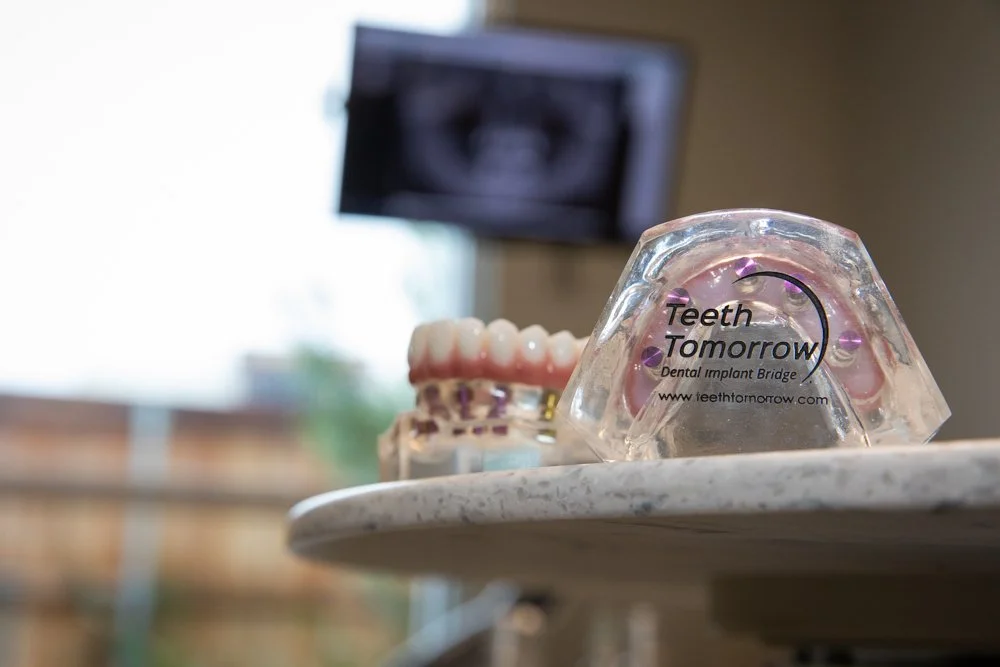
Dental Implants have a high success rate but there is a risk of dental implant failure at some point in a client’s life. An infection that develops around the base of the implant is known as peri-implantitis, which can cause permanent damage to the surrounding teeth and gums if it is not treated in a timely manner. Peri-implantitis is the leading cause of failing dental implants, but other reasons include: failure to integrate with the jawbone, dental trauma or injury to the area after the implant procedure, and bone loss at sites near the implant.
Advanced Treatment Options for Failing Dental Implants
***Failing Implants Can Be Repaired To Provide A Healthy Smile
Severe pain and discomfort around implant
Swollen or inflamed gums
Implant becomes loose
Pus or swelling around the base of the implant
Bleeding when brushing around the dental implant
Understanding Peri-Implantitis Symptoms
Laser Treatment for Failing Dental Implants
The experts at The Dental Studio of Midland have found laser dentistry to be an effective treatment for peri-implantitis. Unlike traditional treatments for failing dental implants, laser dentistry is a minimally invasive treatment that causes less pain and provides a faster recovery. It’s a highly targeted treatment that targets only the infected tissue and leaves healthy tissue intact. We can effectively clear the area of the infection to help restore the health of the tooth and the dental implant. Laser dentistry does not damage the surface of the implant and helps decontaminate the threads of the implant without requiring surgery.
Traditional procedures are more invasive in nature but may be necessary if laser therapy does not work. Peri-implantitis procedures may involve mechanical debridement of the area, surgery to remove the damaged implant, and additional bone grafting before placing a replacement implant.





